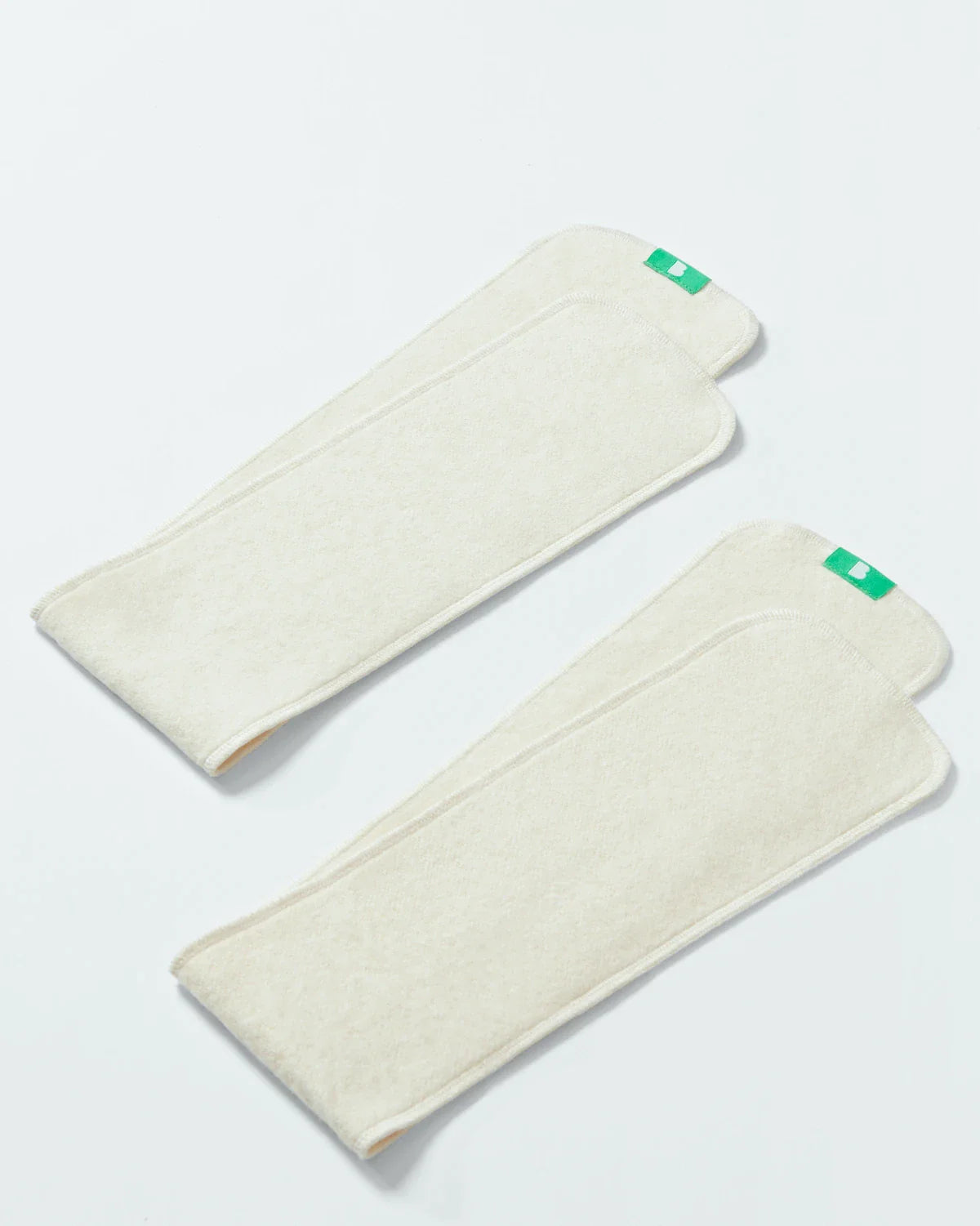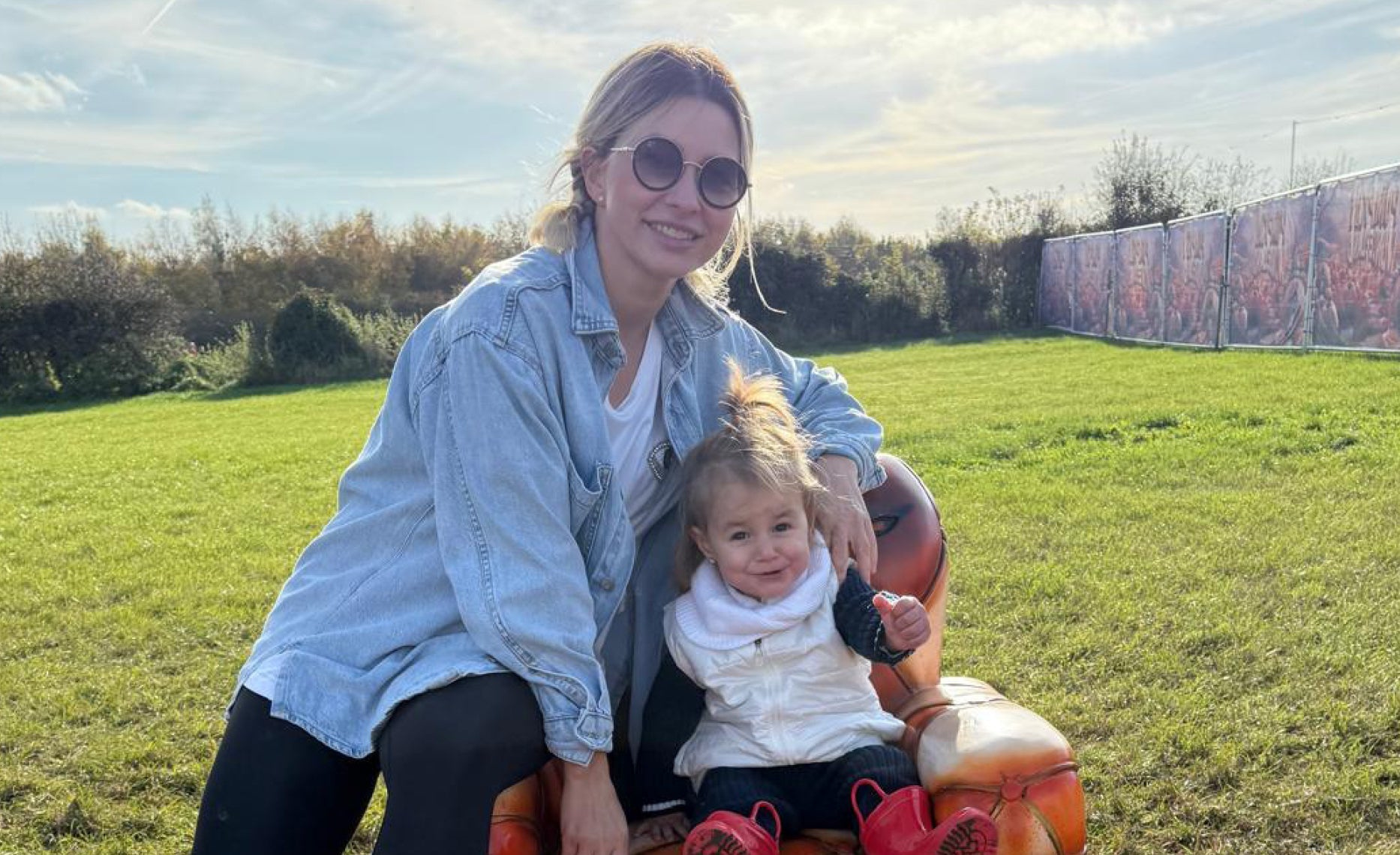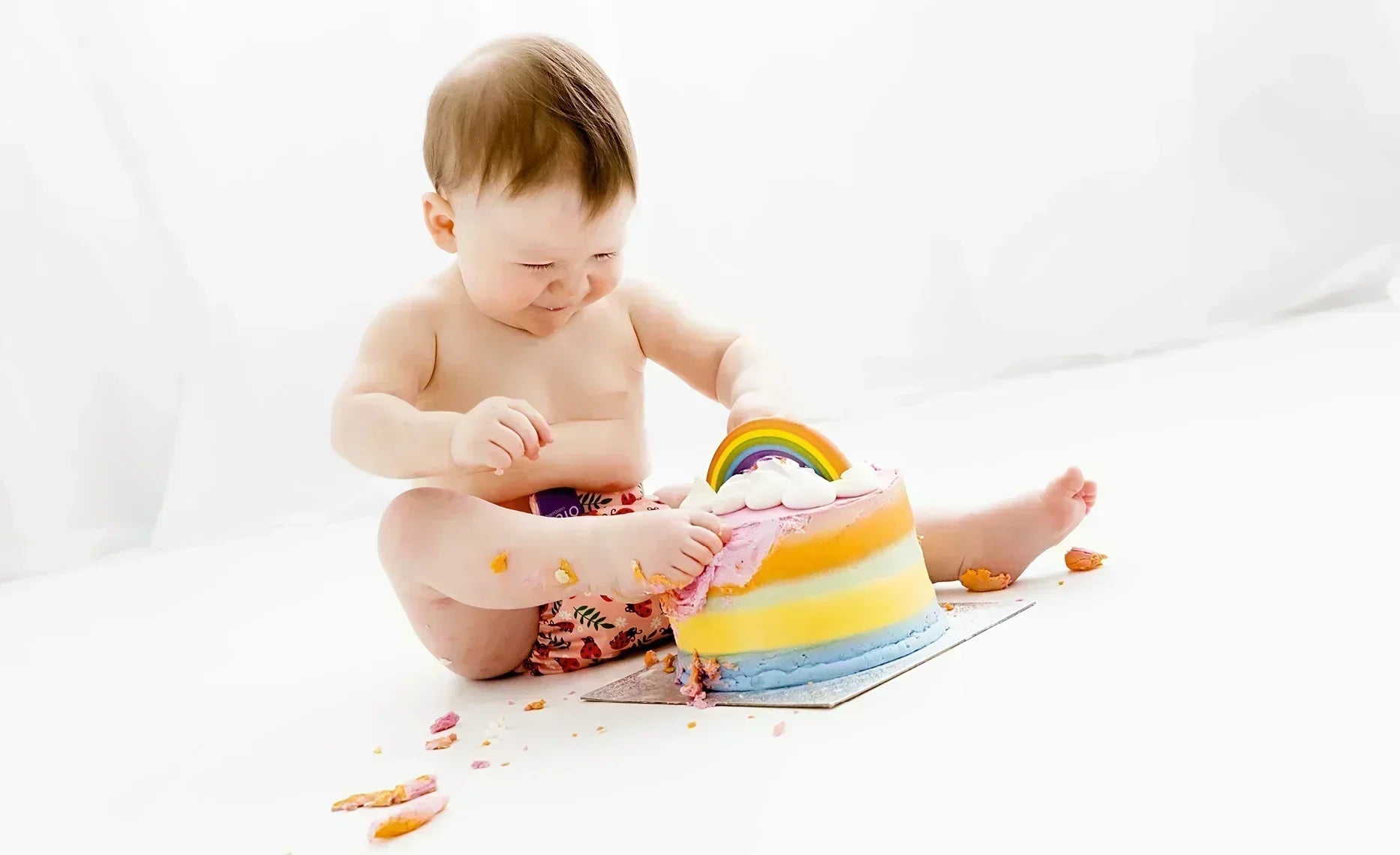Week 15 of Pregnancy | How Big is Your Baby at 15 Weeks?
Share Options
- Bambino Mio
- 19 / 07 / 2023

Pregnancy is a time of huge change for you, your body and your life. Our guide will help you through this amazing time, letting you know what to expect at each stage and, most excitingly, what your baby is up to each week.
At 15 weeks your baby is the size of an apple!
At 15 weeks of pregnancy, your baby is 11.2cm (4.25in) from crown to rump and 16.5cm (6.5in) from crown to heel. They also weigh around 115g (4oz). This makes them around the size of a medium apple when they’re all curled up, which they are when they’re not wriggling around.
Your baby is making more definite movements now
By 15 weeks of pregnancy, your baby is moving their arms and legs, as well as arching their back, curling back up and making breathing movements (1). These movements seem more deliberate, but experts believe that genuinely purposeful foetal movements start at around 18 weeks or so (2).
Hear, hear!
The outer part of your baby’s ears is growing and becoming recognisable as an ear, while the inner ear is developing (3). Your baby can’t hear yet, but it won’t be long until they can hear your voice so start practising your scales!
Very delicate skin
At 15 weeks’ gestation, your baby’s skin is very thin and translucent so it’s easy to see blood vessels and even their skeleton.
Their bones are becoming harder
Your baby’s bones, which were once mostly cartilage, are ossifying, or hardening (4). This process is going on mainly in the skull, spine, long bones and collar bone, although the bones of the hands and feet have started to replace cartilage with bone as well.
How you’re feeling at 15 weeks pregnant
You’re two weeks into your second trimester of pregnancy and you’re probably noticing a lot of common pregnancy symptoms like sickness fading, although a few might still be around, including:
- Dizziness
- Heartburn
- Skin changes
- Headaches
Your weight
You might notice some weight gain around now (5). Most women gain between 0.45kg and 2.3kg (1lb and 5lb) during the first trimester of pregnancy and after this first trimester you’ll probably gain 0.45kg (1lb) each week. If you’re gaining a lot more or a lot less than this, talk to your midwife to make sure everything’s OK.
You might have nosebleeds
With all the hormones, the extra volume of blood in your body and skin changes, it’s not too surprising that you might have the occasional nosebleed during pregnancy (6). The little blood vessels in the inside of your nose can break and bleed more easily due to all the changes going on.
Around 20% of pregnant women have at least a couple of nosebleeds and while they’re annoying, they’re usually manageable. They should stop once you’ve had your baby.
Look out for movement
If this isn’t your first baby, you might start to feel the odd flutter at 15 or 16 weeks of pregnancy (7). That baby bump will probably be making itself known in the next week or so as well - making everything feel even more real than it already does.
Your 16-week midwife appointment
At 16 weeks pregnant you’ll have another routine appointment, during which your midwife will check your blood pressure and test your urine for infection, diabetes and pre-eclampsia. During your 16-week midwife appointment (8), you’ll receive the results of any previous blood tests and you’ll probably talk about your 12-week ultrasound scan (9).
Your midwife will also talk to you about your 20-week scan (10), which usually happens between 19 and 21 weeks, as well as give you information about antenatal classes.
Staying well at 15 weeks pregnant
If you are having nosebleeds then you can usually treat them at home. Here are some useful tips for dealing with nosebleeds during pregnancy:
- Use a humidifier to help to keep your nasal passages moisturised
- If you do get a nosebleed, sit down and keep your head upright - don’t lean backwards or bend down
- Gently squeeze the soft part of your nose for five or 10 minutes to try to stop the bleeding
- Place an ice pack over your nose if the squeezing doesn’t work, as the coldness will constrict the blood vessels in your nose, hopefully stemming the bleeding
- If you’re suffering from pregnancy stuffiness, try to resist the urge to blow your nose as this could rupture small vessels
Occasional nosebleeds that resolve without too much treatment are probably nothing to worry about, but do mention them to your GP or midwife.
If you have a severe nosebleed, a nosebleed that doesn’t resolve within a few hours or you’re having nosebleeds very regularly, then call your midwife or GP because you may have high blood pressure (11).
While you don't need to take your folic acid (12) now, you might want to carry on taking a prenatal vitamin tablet, as well as eating calcium (13) and iron-rich foods (14) to support your baby's bone development and make sure you both have enough iron for your red blood cells.
Things to think about at 15 weeks pregnant
With just 25 weeks (ish) to go until you meet your baby, it’s not too soon to start looking at reusable nappies and wipes like our Changemaker Bundle, which can save you hundreds of pounds during your child’s nappy years.
If you haven’t joined a local antenatal exercise class yet, your second trimester is the perfect time as it’s the “golden” third of your pregnancy when you get some energy back and feel more active.
Your 16-week midwife appointment is coming up, so think about what you need to ask and make a note of anything that’s worrying you or that you feel you need to mention.
Carry on with your healthy pregnancy diet (15) and don’t forget your water intake. Staying well hydrated helps you to avoid or reduce some pregnancy symptoms, such as tiredness, leg cramps and even nosebleeds.
Citations and References
(1) National Institutes of Health (NIH). National Library of Medicine. ‘Fetal Respiratory Movements.’ 1988. Web. pubmed.ncbi.nlm.nih.gov/3135563
(2) Royal College of Physicians of Edinburgh. ‘Insights into Early Fetal Development.’ 2014. Web. web.archive.org/web/20130601182944/http://pregnancyarchive.com/articles/insights-into-early-fetal-development
(3) National Institutes of Health (NIH). National Library of Medicine. ‘Embryology, Ear.’ 2022. Web. www.ncbi.nlm.nih.gov/books/NBK557588
(4) National Institutes of Health (NIH). National Library of Medicine. ‘Embryology, Bone Ossification.’ 2023. Web. www.ncbi.nlm.nih.gov/books/NBK539718
(5) National Health Service (NHS). ‘Common Symptoms in Pregnancy. Weight Gain in Pregnancy.’ 2022. Web. www.nhs.uk/pregnancy/related-conditions/common-symptoms/weight-gain
(6) National Health Service (NHS). ‘Common Symptoms in Pregnancy. Nosebleeds in Pregnancy.’ 2021. Web. www.nhs.uk/pregnancy/related-conditions/common-symptoms/nosebleeds
(7) National Health Service (NHS). ‘Keeping Well in Pregnancy. Your Baby’s Movements.’ 2021. Web. www.nhs.uk/pregnancy/keeping-well/your-babys-movements
(8) National Health Service (NHS). ‘Your Pregnancy Care. Your Antenatal Appointments.’ 2023. Web. www.nhs.uk/pregnancy/your-pregnancy-care/your-antenatal-appointments
(9) National Health Service (NHS). ‘Your Pregnancy Care: 12-week Scan.’ 2020. Web. www.nhs.uk/pregnancy/your-pregnancy-care/12-week-scan
(10) National Health Service (NHS). ‘Your Pregnancy Care. 20-week Screening Scan.’ 2021. Web. www.nhs.uk/pregnancy/your-pregnancy-care/20-week-scan
(11) National Health Service (NHS). ‘Pregnancy Complications. High Blood Pressure (Hypertension) and Pregnancy.’ 2021. www.nhs.uk/pregnancy/related-conditions/complications/high-blood-pressure
(12) National Health Service (NHS). ‘Folic Acid. Pregnancy, Breastfeeding and Fertility While Taking Folic Acid.’ 2022. Web. www.nhs.uk/medicines/folic-acid/pregnancy-breastfeeding-and-fertility-while-taking-folic-acid
(13) National Health Service (NHS). ‘Vitamins and Minerals. Calcium.’ 2020. Web. www.nhs.uk/conditions/vitamins-and-minerals/calcium
(14) National Health Service (NHS). ‘Vitamins and Minerals. Iron.’ 2020. Web. www.nhs.uk/conditions/vitamins-and-minerals/iron
(15) National Health Service (NHS). ‘Keeping Well in Pregnancy. Eating Well in Pregnancy.’ 2023. Web. www.nhs.uk/pregnancy/keeping-well/have-a-healthy-diet
Pregnancy by Week, What to Expect







































